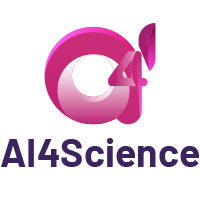The conference welcomes original research articles, short papers, surveys, system papers, and demos on a broad range of topics in AI technologies for science and from science, including but not limited to:
Scientific machine learning
Physics-, chemistry-, and biology-informed learning
Causality, mechanistic models, symbolic AI & neuro-symbolic reasoning
Uncertainty quantification, calibration, robust & trustworthy AI
Explainability, interpretability, and scientific hypothesis generation
Surrogate modeling for simulators
Differentiable programming & PDE solvers
Foundation models for scientific data (text, code, graphs, time series, multimodal)
Data management & curation
Lab automation; autonomous agents for experiments
HPC, distributed training, accelerators, and efficient AI at scale
Benchmarking, evaluation protocols, and open-source toolchains
Scientific visualization, human-in-the-loop systems, and interactive assistants
Physics, astronomy, cosmology, HEP/NP, plasma & fusion, materials science
Inverse problems, instrument control, detector/beamline optimization
Quantum science & technology
Quantum-inspired ML
Generative design and retrosynthesis
Molecular property prediction
Reaction networks, catalysis, battery & energy materials discovery
Multiscale modeling, electronic structure, and spectroscopy analysis
Genomics, proteomics, structural biology, and systems biology
Bioinformatics, single-cell & spatial omics
Drug discovery and design
Neuroscience & cognitive science
Biomedical imaging and digital twins
Climate modeling, weather prediction, hydrology, and oceanography
Remote sensing, GIS, geophysics, ecology, and biodiversity monitoring
Disaster response, sustainability, and environmental policy support
Control, robotics & autonomous systems
CPS and digital twins
Fluid dynamics, aero/thermo/structural analysis, and manufacturing
Communications & networks, smart infrastructure, and energy systems
Automated theorem proving, program synthesis for scientific computing
Scientific workflows, MLOps, and experiment tracking in computational labs
Computational economics, epidemiology, demography, and policy modeling
Science of science, research knowledge graphs, meta-research
Ethics, safety, governance, and equitable access to scientific AI
Reproducibility, data sharing, licensing, and artifact evaluation
